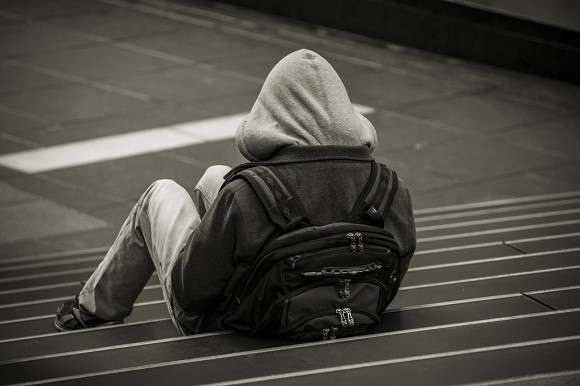New study reveals violence a trigger for women's and men's housing problems

Disadvantaged Australians who suffer violence and housing problems, especially both at one point in time, are at higher risk of suffering these problems again at a later point says a new report from the University of Melbourne.
The study, conducted by Professor David Ribar and Professor Timothy Diette at the Melbourne Institute of Applied Economic and Social Research, confirms previous findings that domestic violence is a significant cause of women's housing insecurity. At the same time, however, it also shows that housing problems put women at risk for violence.
"Violence forces victims to abandon their accommodations, depriving them of the safety of a home and placing them in compromised circumstances," said Professor Ribar.
The study utilised the Journeys Home Survey, Australia's largest dataset on homelessness which tracked 1,682 homeless and at-risk public assistance clients over three years and is one of the first to examine how violence impacts housing insecurity for adult men.
Disadvantaged men's chances of being housing secure without experiencing violence are 24-45 percent lower if they previously experienced housing insecurity, violence or both in the previous period. Women's chances are 12-20 percent lower.
"One in seven of the at-risk women in our survey suffer physical violence in a given six month period, with intimate partners perpetrating most of that violence," Professor Ribar outlined.
"As terrible as those figures are, the rates of physical violence for disadvantaged men are even higher, with one in five experiencing violence in a six-month period, frequently at the hands of strangers. Disadvantaged men also have worse housing outcomes."
Alarming rates of domestic violence for Australian women and the housing consequences of that violence are increasingly being recognised. Last month, the Turnbull government pledged $100 million to reduce women's violence.
However, the housing consequences of violence for men are seldom considered.
"This research should prompt housing advocates and public officials to consider the importance of violence as a general risk factor for women's and men's homelessness," Professor Ribar said. "Initiatives to improve disadvantaged men's safety could greatly help to reduce men's high rates of housing insecurity."
For men and women, the study also found that heavy drinking, marijuana use, psychological distress, and a history of childhood abuse and neglect increased
the risks of violence and housing insecurity, while the presence of children and maintaining contacts with family reduced the risks.
The study also found that bisexual and lesbian women, as well as women with homeless friends, suffer more housing problems.
More information: The report is available online: www.melbourneinstitute.com/dow … series/wp2015n20.pdf
Provided by University of Melbourne





















